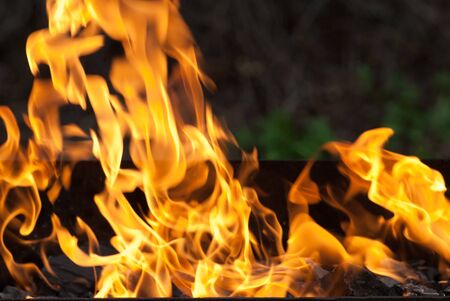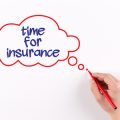Understanding Disaster Risks for Condos and Co-ops
Living in a condo or co-op can offer convenience, community, and great amenities. However, owning this type of property in the United States also means understanding the risks that natural disasters pose. Whether you live on the East Coast, West Coast, or somewhere in between, its important to be aware of how hurricanes, earthquakes, and wildfires could impact your home and finances.
Common Natural Disasters in the U.S.
| Disaster Type | Regions Most Affected | Typical Impact on Condos/Co-ops |
|---|---|---|
| Hurricanes | East Coast, Gulf Coast, Southeast | Wind damage, flooding, roof leaks, power outages |
| Earthquakes | West Coast (especially California), some central states | Structural damage, broken pipes, foundation cracks |
| Wildfires | West Coast (California, Oregon), Mountain states | Fire and smoke damage, evacuation needs, loss of property |
The Unique Risks for Condo and Co-op Owners
If you own a condo or co-op unit, you share certain building features with your neighbors. While this can mean shared costs for repairs and maintenance through your homeowners association (HOA) or co-op board, it also means that a disaster affecting one part of the building can quickly become everyone’s problem. For example:
- Shared Walls: Damage can spread between units more easily than in single-family homes.
- Common Areas: Lobbies, hallways, roofs, and elevators are all at risk during disasters.
- HOA Master Policy Limitations: The insurance carried by your association may not cover damage inside your unit or personal belongings.
How Disasters Can Affect Your Home and Finances
A major storm or fire doesn’t just threaten your living space—it can also impact your financial security. Repairs can be expensive; sometimes residents must relocate while work is done. Understanding which disasters are most likely where you live helps you plan ahead and choose the right insurance coverage for peace of mind.
2. Master Policy vs. Personal Insurance
Understanding the Difference: What Does Each Cover?
When it comes to protecting your condo or co-op from disasters like hurricanes, earthquakes, and wildfires, it’s crucial to know the difference between your building’s master policy and your own personal insurance. Many residents assume their association’s insurance covers everything, but that’s rarely the case. Let’s break down what each policy typically covers so you can be prepared for whatever Mother Nature throws your way.
What is a Master Policy?
The master policy is purchased by your condo association or co-op board. It usually covers common areas and sometimes parts of the individual units. However, what’s included can vary depending on your community’s rules and the type of master policy in place.
What is Personal Insurance?
Your own condo (HO-6) or co-op insurance policy covers the things inside your unit that the master policy doesn’t. This includes your personal belongings, improvements you’ve made, and liability if someone gets hurt inside your home.
Coverage Comparison Table
| Type of Coverage | Master Policy (Association) | Personal Policy (Unit Owner) |
|---|---|---|
| Building Structure (Exterior) | Yes | No |
| Common Areas (Lobby, Hallways, Roof) | Yes | No |
| Interior Walls & Floors of Unit | Sometimes* | Yes/No* |
| Personal Belongings (Furniture, Clothes) | No | Yes |
| Appliances & Upgrades (Renovated Kitchen) | No | Yes |
| Liability (Injury in Common Area) | Yes | No |
| Liability (Injury Inside Unit) | No | Yes |
| Loss Assessment (Shared Damage Costs) | No | Optional Add-on** |
* “Walls-in” vs “bare walls” policies: Some master policies cover fixtures inside your unit (“walls-in”), while others stop at the bare walls.
** Loss assessment coverage helps with costs shared among all owners for damages not fully covered by the master policy.
The Bottom Line: Check Your Documents and Ask Questions!
Your best bet is to review both your association’s master policy and your own insurance documents. If you’re unsure, ask your property manager or an insurance agent specializing in condos and co-ops. Make sure you have enough protection for disasters common in your area—like hurricanes in Florida, earthquakes in California, or wildfires out West—so you’re not caught off guard when the unexpected happens.
![]()
3. Essential Coverage for Hurricanes, Earthquakes, and Wildfires
Understanding Specialized Insurance Needs
If you live in a condo or co-op in the U.S., preparing for disasters like hurricanes, earthquakes, and wildfires is crucial. Standard condo and co-op insurance policies (HO-6) often do not cover all types of natural disasters. To truly protect your home and belongings, you may need to add specialized coverage or endorsements to your policy.
Breakdown of Disaster-Specific Insurance Options
| Disaster Type | Typical Coverage Needed | Key Endorsements & Options |
|---|---|---|
| Hurricane | Windstorm & flood damage (not always standard) |
|
| Earthquake | Structural damage from shaking and aftershocks |
|
| Wildfire | Fire and smoke damage to personal property and building interior |
|
What’s Typically Covered — And What Isn’t?
- Interior Damage: Most HO-6 policies cover interior walls, floors, ceilings, and built-in fixtures—if the disaster is a covered peril.
- Personal Property: Furniture, electronics, and clothing may be protected up to your policy limits.
- Loss Assessment: If your condo association’s master policy doesn’t fully cover shared areas damaged by a disaster, this coverage helps pay your portion of the repairs.
- Exclusions: Standard policies typically exclude flood and earthquake damage. That’s why separate policies or endorsements are essential in risk-prone areas.
Your Next Steps
- Check with your insurance agent about gaps in your current coverage.
- If you’re in a high-risk area, ask about available endorsements for windstorm, flood, and earthquake protection.
- Consider boosting coverage limits for personal property and loss assessment to better match replacement costs after a major disaster.
- Look into local programs or state-backed options for disaster insurance if private insurers don’t offer affordable solutions.
If you have questions about specific risks where you live, it’s always smart to speak directly with an insurance professional familiar with your region’s hazards.
4. Tips for Disaster Preparedness and Damage Mitigation
Emergency Planning for Residents and Boards
Both condo owners and association boards play crucial roles in preparing for disasters. Having a clear emergency plan can save lives and reduce property damage. Here are practical steps everyone should take:
- Develop a Communication Plan: Know how you’ll get information during an emergency (local news, NOAA Weather Radio, emergency alerts) and establish a way to check in with family, neighbors, and building management.
- Create Emergency Kits: Each unit should have supplies like water, non-perishable food, flashlights, batteries, first-aid kits, medications, and copies of important documents.
- Know Evacuation Routes: Identify all exits, stairways, and safe meeting points outside the building. Make sure evacuation plans are posted in common areas.
- Practice Drills: Regularly participate in building-wide fire or earthquake drills so everyone knows what to do if disaster strikes.
Home Fortification: Protecting Your Property
Making your home more resistant to hurricanes, earthquakes, or wildfires can help minimize losses. Here are some actionable tips:
| Disaster Type | Fortification Tips |
|---|---|
| Hurricanes |
|
| Earthquakes |
|
| Wildfires |
|
Board Responsibilities: Building-Wide Safety Measures
- Review Insurance Policies: Make sure master policies cover relevant disasters and update them as needed.
- Maintain Common Areas: Regularly inspect roofs, gutters, fire alarms, sprinklers, and emergency lighting systems.
- Coordinate Preparedness Efforts: Host annual preparedness meetings or workshops for residents.
Your Next Steps
- Ask your property manager about the building’s disaster plan.
- Create or update your household’s emergency kit today.
- If you’re on the board, schedule a review of insurance coverage this quarter.
5. Filing Insurance Claims After a Disaster
Best Practices for Documenting Damage
After a hurricane, earthquake, or wildfire, it’s important to quickly and thoroughly document all damage to your condo or co-op. Here are some best practices:
| Step | What To Do |
|---|---|
| Take Photos & Videos | Capture clear images of all affected areas, including structural damage, personal belongings, and any water or fire damage. |
| Make a List | Create a detailed inventory of damaged items with descriptions, approximate value, and purchase dates if possible. |
| Save Receipts | Keep receipts for emergency repairs, temporary housing, or supplies you needed right after the disaster. |
| Don’t Throw Away Items Yet | If safe, keep damaged property until the insurance adjuster has seen them or gives you the okay to dispose of them. |
Communicating With Your Insurer
Contact your insurance company as soon as you can. Most insurers have 24/7 claim hotlines, especially during major disasters. When you call:
- Have your policy number ready.
- Be ready to describe what happened and the extent of the damage.
- Ask about next steps and required documentation.
- Write down the name and contact info of everyone you speak with at your insurance company.
Navigating the Claims Process
The process can feel overwhelming, but breaking it down makes it easier to manage:
| Step in Claims Process | Description |
|---|---|
| Initial Contact | Report your loss by phone, online portal, or mobile app. Get a claim number for reference. |
| Inspection & Adjuster Visit | An adjuster will visit your property to assess damages. Be present if possible and share your documentation. |
| Review & Estimate | Your insurer reviews the information and may request more details or documents. They provide an estimate of covered repairs or replacements. |
| Payout & Repairs | If approved, youll receive payment based on your coverage limits and deductible. Work with trusted contractors for repairs; keep records of all expenses. |
| Appeals & Questions | If you disagree with the settlement amount, ask about appeal procedures or consider a public adjuster for help. |
Tips for a Smooth Claims Experience
- Stay organized: Keep all claim-related emails, letters, and notes in one place.
- Follow up regularly if you haven’t heard back from your insurer within their promised timeframes.
- If living in a condo or co-op community, coordinate with your association manager about shared property claims versus individual unit claims.
- If you have questions about what’s covered (for example, water vs. wind damage), don’t hesitate to ask your insurer to clarify.
This approach helps ensure you get the support you need from your insurance provider during a difficult time after hurricanes, earthquakes, or wildfires affecting condos and co-ops in the U.S.


